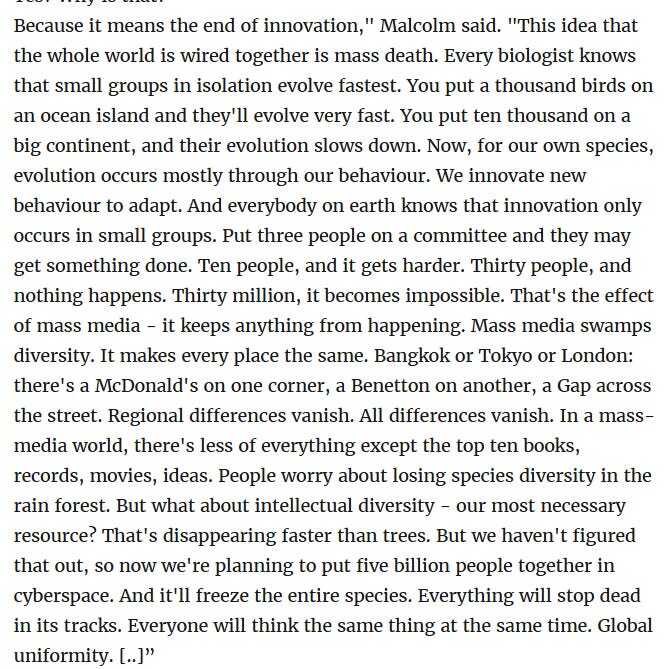I'm guessing this is Jurassic Park, by Michael Crichton?
Feels like a "so close to the answer" kind of statement that veers wildly wrong because of the false metaphor employed at the beginning.
Low populations are bad for evolution, actually.
And why wouldn't that be true? Larger population means more opportunity for mutation, more chances to evolve. Larger pops are usually more spread out, which means more diverse environments, which means varied pressures for selection, which means more diversity and more evolution.
Island species are ideally suited to test the nearly neutral theory. Both the colonization process involved in their evolution and the limited ranges offered by islands contribute to reduced effective population size, and we can expect drift to be a major force in their evolution. With this in mind, Leroy and colleagues4 investigated the genomic diversity of 14 island and 11 continental songbird species (Figure 1). They found that island birds are genetically less diverse than continental congeners and have smaller effective population size; they harbour a higher proportion of harmful mutations, and less beneficial mutations reached fixation over the course of their evolution.
So the metaphor is misleading and leads to bad conclusions. The internet should, and did, cause a huge burst of innovation as globally isolated people were able to connect and exchange ideas for the first time. Multiple new genres of music, film, writing, and games have been the evolutionary descendents of this early-internet swapping of "memetic material."
If it seems like thats died off now, its because the internet isn't a wild place of free evolution and innovation anymore. Like the natural world, it has been colonized by monied-interests who have monocultured it because thats simpler to understand and control from the top down, which is how the rich on top like it.
